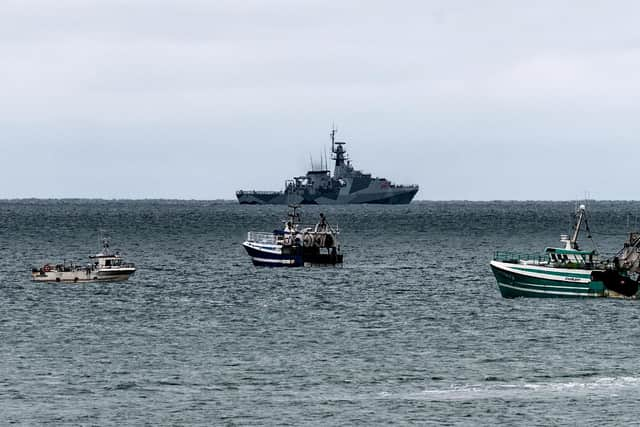Post-Brexit row between France and UK over Jersey fishing rights should never have been allowed to escalate so dramatically – Scotsman comment
The fleet, of about 60 fishing boats, descended on Jersey’s Saint Helier harbour to protest about how licences to fish in British waters were being handled, claiming the UK side had introduced new requirements that effectively prevented them from operating in the waters they normally use.
On Jersey, a member of a re-enactment militia group fired a blank from a musket towards the boats and one local fishing industry leader claimed the “blockade” was “pretty close to an act of war”. However, others on the island expressed sympathy with the French.
Advertisement
Hide AdAdvertisement
Hide AdMeanwhile in France, a government minister appallingly suggested electricity supplies to Jersey could be cut off, while a Normandy official was quoted as saying “we’re ready for war”.
Into this fevered mix were sent two heavily armed Royal Navy ships and two French patrol boats before sense appeared to prevail.
Whatever the rights and wrongs of the issue, it is a dispute that should have been sorted out with minimal fuss.
Brexit was a slightly bitter divorce, but it should be a primary foreign policy objective for the UK to maintain good relations with our closest neighbours and fellow liberal democracies. Boris Johnson and Foreign Secretary Dominic Raab need to work hard to prevent the inevitable disputes, like this one, from getting out of hand, and should also be looking for ways to demonstrate goodwill, practically or symbolically.


And, as Scotland waits to hear if we have elected a pro-independence majority of MSPs, nationalists should take the Jersey spat as a warning of what can happen when state-level separations go wrong. Were this country to become independent, maintaining relations with our nearest – and dearest – neighbours would be of overwhelming importance.
That is a question for another day but, in the meantime, we in Britain would do well to stop reacting to the most heated rhetoric we can find in France – and vice versa – to avoid a little local difficulty from escalating into a full-blown diplomatic crisis.
A message from the Editor:
Thank you for reading this article. We're more reliant on your support than ever as the shift in consumer habits brought about by coronavirus impacts our advertisers.
If you haven't already, please consider supporting our trusted, fact-checked journalism by taking out a digital subscription.
Comments
Want to join the conversation? Please or to comment on this article.
